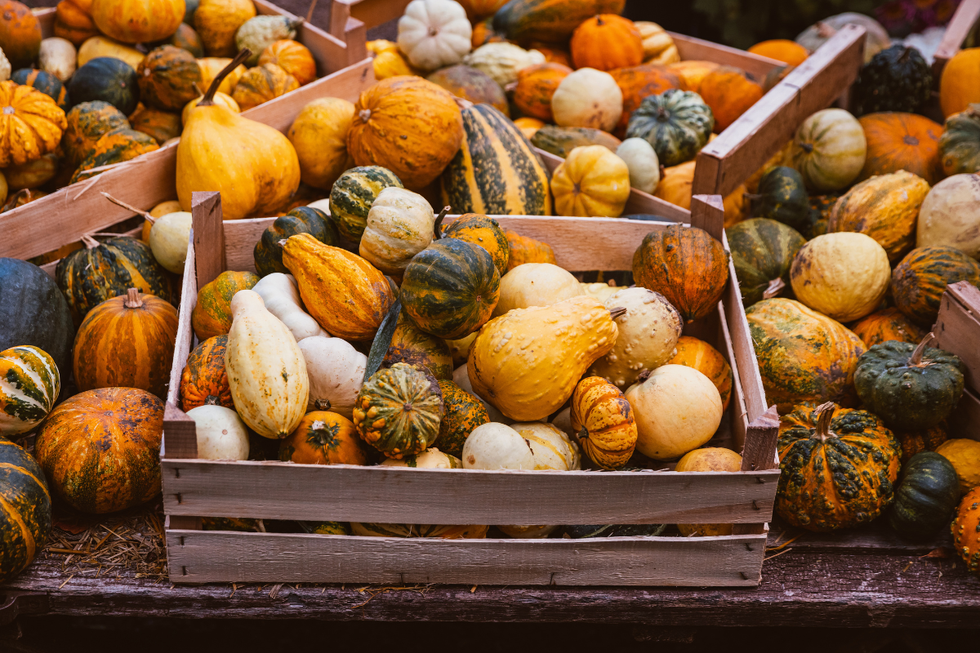Britons told to fend off cognitive decline with autumn staple – 'Even small daily amounts make a measurable difference'
An effective brain food is making its annual debut in the vegetable aisle
Don't Miss
Most Read
Although summer may be over, the fresh produce on supermarket shelves is no less packed with delicious nutrients, even though they might not be destined for a crisp cold salad packed full of leafy greens.
As many start to reach for cosy knitted jumpers, heartier meals like soups and stews might start to play on your mind to stay warm.
In fact, brain health experts concur that switching up our eating habits in accordance with the seasons can provide “targeted nutritional support”.
“People often overlook how powerful seasonal foods can be for cognitive function,” cognitive health guru Lev Fomchenkoc explained.

Squashes are finally making their annual appearance
|GETTY
“There's one autumn staple that's been sitting right under our noses, packed with compounds that can genuinely improve memory and focus.”
Packed with delightful flavour and nutrient-dense seeds, pumpkins are more than a festive decoration or a spiced syrup to add to your coffee.
“The brain requires consistent fuel to maintain optimal function, and seasonal foods often provide exactly what we need during specific times of year,” Mr Fomchenkoc explained.
“Pumpkin becomes available right when our brains need extra support for the colder months ahead,” the guru added.
LATEST DEVELOPMENTS
While the brightly-coloured flesh boasts high levels of vitamin A, vitamin C, potassium and fibre, the seeds contain zinc, magnesium, copper and iron - all of which boosts neurotransmitter function and memory formation.
“Zinc alone plays a role in over 300 enzymatic reactions in the brain,” the brain expert explained. “A single ounce of pumpkin seeds provides about 20 per cent of your daily zinc needs, making them one of the most efficient brain foods available.”
Mr Fomchenkoc recounted that he had even observed individuals noticing sharper focus and better memory recall within just a few days of consistently eating pumpkin seeds.
“The zinc and magnesium contribute to normal brain and nervous system function, which are key for learning and memory.”

A soup is an easy way to get a delicious blend of vegetables while staying cosy
|GETTY
In the long term, this means that pumpkins’ antioxidants fend off cognitive decline, combatting oxidative stress, which is the culprit behind age-related memory problems and neurodegenerative conditions.
There are endless ways to incorporate more pumpkin into your diet, whether that’s just from an extra addition to your vegetable soup or replacing some flour while baking with some of the squash’s puree.
“The key is consistency rather than quantity,” Mr Fomchenkoc advised. “Even small daily amounts of pumpkin or pumpkin seeds can make a measurable difference in cognitive performance over time.”
Our Standards: The GB News Editorial Charter











